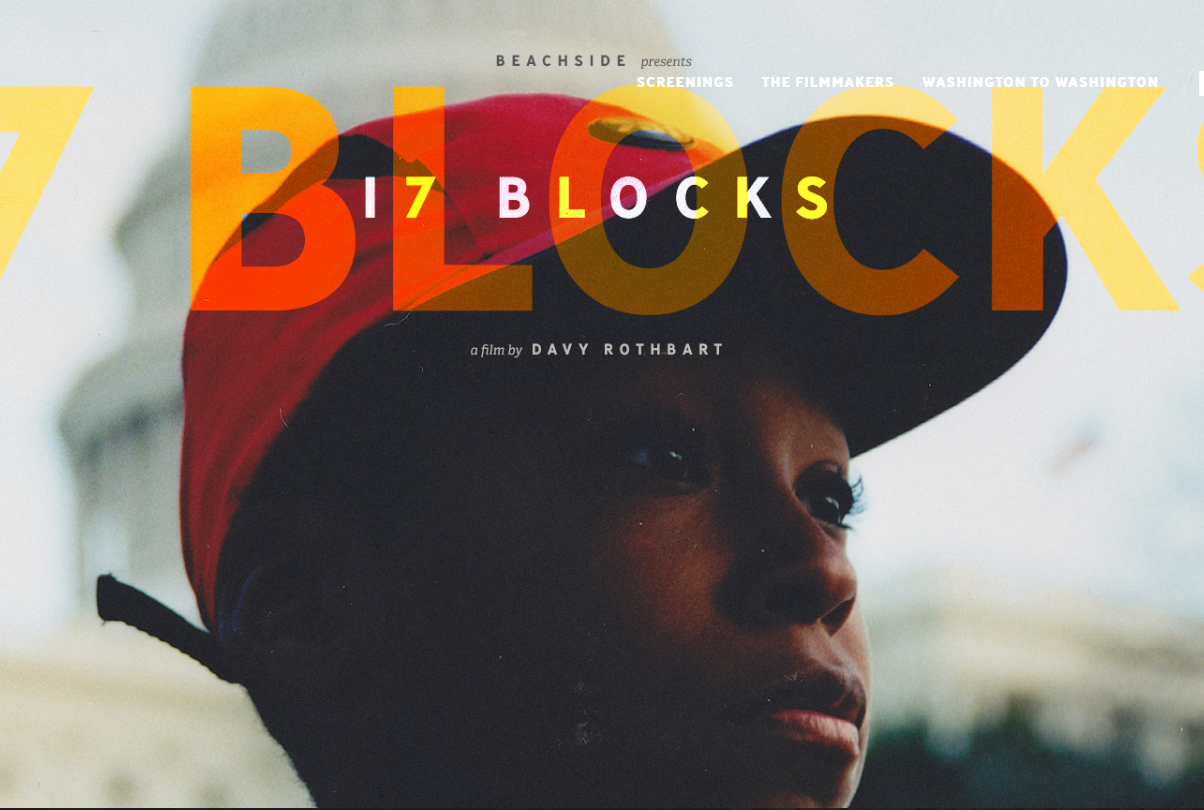Premiering at this year’s Tribeca Film Festival, where it picked up the Award for Best Editing in a Documentary Feature Film, Davy Rothbart’s 17 Blocks is a compelling, two-decades-long look at the Sanford-Durants, an African-American family navigating the ups and downs of daily, low-income life in the shadow of the U.S. Capitol – just 17 blocks away from our nation’s halls of power to be precise. The film’s main cast of characters includes Cheryl Sanford, the strong-willed matriarch who grew up middle-class in a neighborhood nearby; her college-bound son Emmanuel Durant, Jr., who began the whole documenting process as an inquisitive nine-year-old with a home video camera back in 1999; Denice Sanford-Durant, who serves as the family’s grounding force even as Cheryl’s drug addiction spirals out of control; and Akil “Smurf” Sanford, who unfortunately follows in his mother’s footsteps, using drugs and ultimately dealing them.
While the film is an undeniably moving and powerful portrait of the inner-city disadvantaged overcoming obstacles and rising above urban blight adversity, it is also problematically tidy, nearly cliché. Rothbart, the film’s Emmy Award-winning director – and a contributor to This American Life – is notably not from the neighborhood he chronicles. He first met a 15-year-old Smurf and his budding filmmaker brother Emmanuel on a public basketball court only by chance, then soon befriended the entire clan. Rothbart, not incidentally, is white.
And this is important. For though the doc is supposedly a “collaboration” between Rothbart and the family, I found myself extremely skeptical that this partnership went much beyond incorporating Emmanuel’s footage, and the usual filmmaker-subject relationship that every character-based documentary requires. The film might be about a black family in DC, but it’s the white liberal gaze that unnervingly seems at the forefront of every frame.
Indeed, as far as I could tell – and a quick look at the film’s website subsequently confirmed – not one person credited on the filmmaking team is black. And incredibly, not even one member of the Sanford-Durant family is listed as holding any position of creative power. Which suddenly explains a lot.
For the “heroic resilience” of black folks storyline the film presents is itself a condescending, feel-good-for-white-people myth. It allows those of us in the audience – mostly white liberals like myself – to conveniently forget the fact that individual agency is never not dependent on the color of one’s skin. Simply put, if you happen to have the luxury of being born white, and at least middle-class, then you can escape society making life choices for you.
Which brings me to the scene that particularly made me squeamish, one in which Cheryl, towards the end of the film, nobly takes responsibility for her actions and their destructive consequences for her kin. She holds herself accountable for the bad choices she made in her life – decisions that, like dominoes falling, precipitated loss after horrific loss. The implication being (one Cheryl herself seems to have bought into) that had this once-middle-class black woman made all the “right” decisions in her life – not becoming pregnant at an early age, not using drugs – she could have prevented eviction from the home that she was raised in, the death of a loved one, the thug life of a son.
To which I respond: Really? Untold scores of hardworking, sober black matriarchs lose their houses to gentrification everyday, their clean-cut children to robberies in impoverished neighborhoods gone wrong, their pot-smoking kids to the high-rolling glamour of the streets. That is a real truth – one which we’d prefer not to see onscreen – because it inconveniently gives the lie to the pull-yourself-up-from-the-

